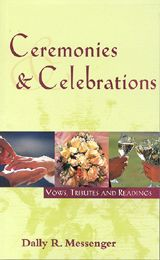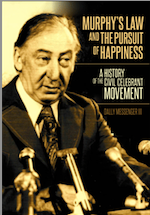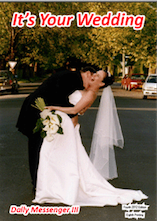Readings - Poetry and Prose for Funerals -1
Most of the poems below are not subject to copyright.
The ones subject to copyright are published for students and studying graduates of the College of Celebrancy.  The following poems have been contributed byMark O'Connor,himself a notable poet, and one of our most distinguished Celebrants and Graduates.
The following poems have been contributed byMark O'Connor,himself a notable poet, and one of our most distinguished Celebrants and Graduates.
(Note: any celebrant can use any poem in any ceremony as ceremonies-as-performances are categorised as "domestic".)
Please note the following for very few:-
COMMONWEALTH OF AUSTRALIA
Copyright Regulations 1969
Warning. This material has been reproduced and communicated to you by or on behalf of the INTERNATIONAL COLLEGE OF CELEBRANCY
pursuant to Part VB of the Copyright Act 1968.
The material in this communication may be subject to copyright under the Act.
Any further reproduction or communication of this material by you may be the subject of copyright protection under the Act.
Perhaps ... to R.A.L
Perhaps some day the sun will shine again,
And I shall see that still the skies are blue,
And feel once more I do not live in vain,
Although bereft of You.
Perhaps the golden meadows at my feet
Will make the sunny hours of spring seem gay,
And I shall find the white May-blossoms sweet,
Though You have passed away,
Perhaps the summer woods will shimmer bright,
And crimson roses once again be fair,
And autumn harvest fields a rich delight,
Although You are not there,
But though kind Time may many joys renew,
There is one greatest joy I shall not know
Again, because my heart for loss of You
Was broken, long ago.
Vera Brittain. 19l6.
From Verses of a V.A.D.
from Hamlet
This reading is often suitable for the funeral of a person who has committed suicide
To be, or not to be: that is the question:
Whether 'tis nobler in the mind to suffer
The slings and arrows of outrageous fortune, 68
Or to take arms against a sea of troubles,
And by opposing end them? To die: to sleep;
No more; and, by a sleep to say we end
The heart-ache and the thousand natural shocks 72
That flesh is heir to, 'tis a consummation
Devoutly to be wish'd. To die, to sleep;
To sleep: perchance to dream: ay, there's the rub;
For in that sleep of death what dreams may come 76
When we have shuffled off this mortal coil,
Must give us pause. There's the respect
That makes calamity of so long life;
For who would bear the whips and scorns of time, 80
The oppressor's wrong, the proud man's contumely,
The pangs of dispriz'd love, the law's delay,
The insolence of office, and the spurns
That patient merit of the unworthy takes, 84
When he himself might his quietus make
With a bare bodkin? who would fardels bear,
To grunt and sweat under a weary life,
But that the dread of something after death, 88
The undiscover'd country from whose bourn
No traveller returns, puzzles the will,
And makes us rather bear those ills we have
Than fly to others that we know not of? 92
Thus conscience does make cowards of us all .
William Shakespeare
Exodus: Against Cremation by AD Hope
(Around the age of 90, A.D. Hope composed his own funeral instructions in verse)
When I am dead, believe me
This is my last desire,
That gentle earth receive me
And not the lordly fire.
My mother and my father
Went through the gate of flame
But I myself would rather
Go back the way I came
Let the deep mould which bore me
Enfold me in the grave
And, as from men before me,
Take back the gifts it gave.
from The First Elegy, The Duino Elegies. Rainer Maria Rilke
"True, it is strange to inhabit the earth no longer,
to use no longer customs scarcely acquired,
not to interpret roses, and other things
that promise so much, in terms of a human future;
to be no longer all that one used to be
in endlessly anxious hands, and to lay aside
even one's proper name like a broken toy.
Strange, not to go on wishing one's wishes. Strange,
to see all that was once relation so loosely fluttering
hither and thither in space. And it's hard, being dead,
and full of retrieving before one begins to perceive
a little eternity. - All of the living, though,
make the mistake of drawing too sharp distinctions.
Angels (it's said) would be often unable to tell
whether they moved among living or dead. The eternal
torrent whirls all the ages through either realm
for ever, and sounds above their voices in both."
Bread and Music -by Conrad Aitkin
Music I heard with you was more than music,
And bread I broke with you was more than bread;
Now that I am without you, all is desolate;
All that was once so beautiful is dead.
Your hands once touched this table and this silver,
And I have seen your fingers hold this glass.
These things do not remember you, belovèd,
And yet your touch upon them will not pass.
For it was in my heart you moved among them,
And blessed them with your hands and with your eyes;
And in my heart they will remember always,--
They knew you once, O beautiful and wise.
THE OLIVE TREE by Mark O'Connor
(A poem that uses the olive tree as traditional symbol of civilization and endurance against destructive forces)
Nobody knows how long it takes to kill an olive.
Drought, axe, fire, are admitted failures. Hack one down,
grub out a ton of mainroot for fuel, and next spring
every side-root sends up shoots. A great frost
can leave the trees leafless for years; they revive.
Invading armies will fell them. They return
through the burnt-out ribs of siege machines.
Only the patient goat, nibbling his way down the ages,
has malice to master the olive. Sometimes, they say,
a man finds a dead orchard, fired and goat-
cropped centuries back. He settles and fences;
the stumps revive. His grandchildren's family prosper
by the arduous oil-pressing trade. Then wars
and disease wash over. Goats return. The olives
go under, waiting another age.
Their shade still lies where Socrates disputed.
Gethsemane's withered groves are bearing yet.
Fear no more the heat of the sun (from Cymbeline, IV I)
Fear no more the heat o' the sun,
Nor the furious winter's rages;
Thou they worldly task hast done,
Home art gone and ta'en they wages:
Golden lads and girls all must,
Like chimney sweepers, come to dust.
Fear no more the frown o' the great,
Thou art past the tyrant's stroke;
Care no more to clothe and eat;
To thee the reed is as the oak;
The sceptre, learning, physic, must
All follow this and come to dust.
Fear no more the lightning-flash,
Not the all-dreaded thunder-stone;
Fear not slander, censure rash;
Thou hast finished joy and moan:
All lovers young, all lovers must
Consign to thee and come to dust.
No exorciser harm thee!
Nor no witchcraft charm thee!
Ghost unbid forbear thee!
Nothing ill come near thee!
Quiet consummation have:
And renowned be thy grave!
William Shakespeare
AUTUMN by James McAuley, translating Rilke
Heart, it is time. The fruitful summer yields.
The shadows fall across the figured dial,
The winds are loosed upon the harvest fields.
See that these last fruit swell upon the vine,
Grant them as yet a southern day or two
Then press them to fulfillment and pursue
The last of sweetness in the heady wine.
You shall be homeless, shall not build this year.
You shall be solitary and long alone.
Shall wake, and read, and write long letters home,
And on deserted pavements, here and there
Shall wander restless, as the leaves are blown.
The Debt Unpayable (for a serviceman/woman) by Francis William Bourdillon
What have I given,
Bold sailor on the sea?
In earth or heaven,
That you should die for me?
What can I give,
O soldier, leal and brave,
Long as I live,
To pay the life you gave?
What tithe or part
Can I return to thee,
O stricken heart,
That thou shouldst break for me?
The wind of Death
For you has slain life's flowers,
It withereth
(God grant) all weeds in ours.
Eurydice by Francis William Bourdillon
(demanding some knowledge of the classical/operatic myth of Eurydice)
HE came to call me back from death
To the bright world above.
I hear him yet with trembling breath
Low calling, "O sweet love!
Come back! The earth is just as fair;
The flowers, the open skies are there;
Come back to life and love!"
Oh! all my heart went out to him,
And the sweet air above.
With happy tears my eyes were dim;
I called him, "O sweet love!
I come, for thou art all to me.
Go forth, and I will follow thee,
Right back to life and love!"
I followed through the cavern black;
I saw the blue above.
Some terror turned me to look back:
I heard him wail, "O love!
What hast thou done! What hast thou done!"
And then I saw no more the sun,
And lost were life and love.
Little Gidding (from Four Quartets) by T. S. Eliot
This piece is perhaps the one major excerpt from Eliot that ought to work for a general audience. Its liturgical tones are quite appropriate, and the mysticism not too obscure.
We shall not cease from exploration
And the end of all our exploring
Will be to arrive where we started
And know the place for the first time.
Through the unknown, unremembered gate
When the last of earth left to discover
Is that which was the beginning;
At the source of the longest river
The voice of the hidden waterfall
And the children in the apple-tree
Not known, because not looked for
But heard, half-heard, in the stillness
Between two waves of the sea.
Quick now, here, now, always
A condition of complete simplicity
(Costing not less than everything)
And all shall be well and
All manner of thing shall be well
When the tongues of flame are in-folded
Into the crowned knot of fire
And the fire and the rose are one.
The Astronaut About to Escape Earth (from Embryo Voyage )by Mark O'Connor
She walked in silence
enamoured of touch, on
the thin film of life that encrusts
the hot planet of iron.
On garrulous buoys aloft
the nervous system of the horde
flickered from pole to cloudy pole.
To leave this surface we love, join
the gnat-choirs, bound
for Lagrangian space . . .
Seeing Ophelia's face in the freezing stream
swept with euglena, ranunculus, starwort,
she walks, face iced free of time and terror,
her shod foot crunching
the scaly shale bric-a-brac matrix
of petrified dragons and many-toothed birds
(what my sister is now, that shall I be)
on this slag top of the fiery furnace.
Where again to meet
what we understand so little?
Aloft and smiling, she touched a key
to hear the voice of that deep planet
call the children of the sun.
from Samuel Butler
I fall asleep in the full and certain hope
That my slumber shall not be broken
And that though I be all forgetting
Yet shall I not be all forgotten
But continue that life in the thoughts and deeds
Of those I loved.
from Conan Doyle
What can be happier than a life made beautiful
with friendship and love and completed in honour.
Old Man and Pond by Mark O'Connor
(poem for a biologist -- perhaps ...)
I have waded in deep as an old man can
who is a worshipper of ponds and stars
because both are the holes into which
the dead things fall to be born again.
A numb cold seeps in my toes, spills
past the warped leather tongue, brings
a dozen ostracods and a bosminae school
to feed on the rich wool soup of my socks.
I know about ponds, how they choke on the corpse
of success, how this one soon will be a
swamp so thick that the long-toed dotterel
stamps on top - and I see the pool
on this leaden day as what it is, a cold
furnace, where lives are dissolved and made.
Invictus by William Ernest Henley
Made famous in the film of the same name on the triumph of Nelson Mandela and his connection with Rugby Union
Out of the night that covers me,
Black as the Pit from pole to pole,
I thank whatever gods may be
For my unconquerable soul.
In the fell clutch of circumstance
I have not winced nor cried aloud.
Under the bludgeoning of chance
My head is bloody, but unbowed.
Beyond this place of wrath and tears
Looms but the Horror of the shade,
And yet the menace of the years
Finds, and shall find me, unafraid.
It matters not how strait the gate,
How charged with punishments the scroll
I am the master of my fate:
I am the captain of my soul.
5 excerpts from Lycidas by John Milton
Though often called the greatest funeral elegy in the language, Lycidas's length and dated literary language makes it suitable only in excerpts, and for rather special deceased persons and very well-educated mourners. Still, this would give a unique quality to any funeral at which it could be used. I suggest that something might possibly be done with the following excerpts. The name Lycidas should be replaced by that of the deceased.
1. Intro:
Yet once more, O ye laurels and once more
Ye myrtles brown, with ivy never sere,
I come to pluck your berries harsh and crude,
And with forced fingers rude,
Shatter your leaves before the mellowing year.
Bitter constraint, and sad occasion dear,
Compels me to disturb your season due;
For Lycidas is dead, dead ere his prime,
Young Lycidas, and hath not left his peer.
2. Use these lines if for a poet or a singer:
Who would not sing for Lycidas? He knew
Himself to sing, and build the lofty rhyme.
He must not float upon his watery bier
Unwept, and welter to the parching wind,
Without the meed of some melodious tear.
Begin then, sisters of the sacred well
That from beneath the seat of Jove doth spring,
Begin, and somewhat loudly sweep the string.
Hence with denial vain, and coy excuse;
3. (Reflection on Fame)
Alas! What boots it with uncessant care
To tend the homely slighted shepherd's trade.
And strictly meditate the thankless Muse?
Were it not better done as others use,
To sport with Amaryllis in the shade,
Or with the tangles of Neaera's hair?
Fame is the spur that the clear spirit doth raise
(That last infirmity of noble mind)
To scorn delights, and live laborious days;
But the fair guerdon when we hope to find,
And think to burst out into sudden blaze,
Comes the blind Fury with th' abhorréd shears,
And slits the thin spun life. -But not the praise,
Phoebus replied, and touched my trembling ears;
Fame is no plant that grows on mortal soil,
Nor in the glistering foil
Set off to th' world, nor in broad rumor lies,
But lives and spreads aloft by those pure eyes,
And perfect witness of all-judging Jove;
As he pronounces lastly on each deed,
Of so much fame in Heaven expect thy meed.
4. Use these lines if for a priest or ex-priest. (shepherd = pastor)
Last came and last did go
The pilot of the Galilean lake,
Two massy keys he bore of metals twain
(The golden opes, the iron shuts amain).
He shook his mitered locks, and stern bespake:
How well could I have spared for thee, young swain,
Enow of such as for their bellies' sake,
Creep and intrude, and climb into the fold!
Of other care they little reckoning make,
Than how to scramble at the shearer's feast,
And shove away the worthy bidden guest.
Blind mouths! That scarce themselves know how to hold
A sheep-hook, or have learned aught else the least
That to the faithful herdman's art belongs!
What recks it them? What need they? They are sped;
And when they list, their lean and flashy songs
Grate on their scrannel pipes of wretched straw.
The hungry sheep look up, and are not fed,
But swoln with wind, and the rank mist they draw,
Rot inwardly, and foul contagion spread,
Besides what the grim wolf with privy paw
Daily devours apace, and nothing said.
But that two-handed engine at the door
Stands ready to smite once, and smite no more.
5. (The Pious Peroration)
Look homeward angel now, and melt with ruth:
And, O ye dolphins, waft the hapless youth.
Weep no more, woeful shepherds, weep no more,
For Lycidas your sorrow is not dead,
Sunk though he be beneath the watery floor,
So sinks the day-star in the ocean bed,
And yet anon repairs his drooping head,
And tricks his beams, and with new spangled ore,
Flames in the forehead of the morning sky:
So Lycidas sunk low, but mounted high,
Through the dear might of him that walk'd the waves,
Ceremonies - all |
History |
Marriage Ceremonies |
---=

